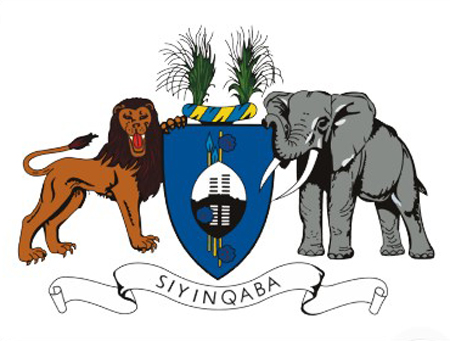National Arms of eSwatini: Difference between revisions
Jump to navigation
Jump to search
Knorrepoes (talk | contribs) m (Text replacement - ".jpg|center]] ====Official blazon====" to ".jpg|center|Arms of {{PAGENAME}}]] ====Official blazon====") |
Knorrepoes (talk | contribs) m (Text replacement - "====Origin/meaning====" to "===Origin/meaning===") |
||
| Line 11: | Line 11: | ||
====Official blazon==== | ====Official blazon==== | ||
===Origin/meaning=== | |||
The two supporters are the symbols of power for the King (lion) and the Queen-mother (elephant). The shield is a typical Nguni shield used in the country. The weapons on the shield are typical local weapons. The colour of the shield is derived from the King's own regiment. | The two supporters are the symbols of power for the King (lion) and the Queen-mother (elephant). The shield is a typical Nguni shield used in the country. The weapons on the shield are typical local weapons. The colour of the shield is derived from the King's own regiment. | ||
Revision as of 05:11, 23 June 2017
| Heraldry of the World Civic heraldry of Swaziland |
NATIONAL COAT OF ARMS OF SWAZILAND
Official blazon
Origin/meaning
The two supporters are the symbols of power for the King (lion) and the Queen-mother (elephant). The shield is a typical Nguni shield used in the country. The weapons on the shield are typical local weapons. The colour of the shield is derived from the King's own regiment.
Contact and Support
Partners:
Your logo here ?
Contact us
© since 1995, Heraldry of the World, Ralf Hartemink 
Index of the site
Literature: -










